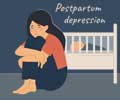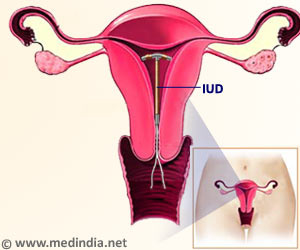For the first time researchers have demonstrated the effectiveness of online group psychotherapy for postpartum depression when delivered by peers.

Online peer-delivered group cognitive-behavioral therapy for postpartum depression
Go to source).
What is Postpartum Depression
PPD and its associated symptoms affect up to one in five new mothers, yet only 10 percent receive evidence-based care. Left untreated, PPD increases the risk of future depressive episodes, family problems, and cognitive, emotional, and behavioral problems in the child. “Given the number of individuals who have experienced and recovered from postpartum depression, and since this treatment is scalable and deliverable online, it has the potential to substantially improve access to effective treatment for mothers with postpartum depression,” says Van Lieshout.‘Mothers who underwent treatment from their peers had an 11-fold increased likelihood of achieving remission from their major depressive disorder. #postpartumdepression #depressednewmothers #talktherapy’





Researchers recruited 183 mothers from across Ontario from Aug. 2020 and Feb. 2022 to either receive nine weeks of group cognitive behavioral therapy (CBT) delivered online from peers who had once experienced PPD and had since recovered, or to receive treatment as usual. The individuals in the treatment as usual group received the peer-delivered group CBT after being on a waitlist. Participants in the peer-led CBT group manifested clinically significant improvements in postpartum depression and anxiety, as well as better social support, less anxiety about their child, and improvements in their infant's temperament. These changes persisted up to five months after participants started treatment.
Positive Impact of Peer-Led CBT Program: Significantly Reduced Rates of Major Depressive Disorder in Participants
Sixty-four percent of participants in the treatment group met the criteria for major depressive disorder at time of enrollment, compared to six percent after receiving the nine-week peer-led CBT program. Sixty-six percent of participants in the waitlist group met the criteria for major depressive disorder at time of enrollment, compared to 43 percent nine weeks later.In advance of the program, peer facilitators underwent a three-day training program for individuals with no prior formal psychiatric training and observed the nine-week intervention delivered by experts in the hospital setting which it was developed. Facilitators delivered the intervention online in pairs.
“As somebody who has recovered, if I had this support nine and 11 years ago, I might not have had postpartum depression with my second child. I would have had resources and the opportunity to try to get ahead of it if I could,” says Lee-Anne Mosselman-Clarke, who was one of the peer facilitators.
“I think the program allows for an openness in talking and hearing others’ experiences, which takes away a very large part of the shame and the guilt around struggling with postpartum depression and anxiety.”
Advertisement
The study was supported by the Ontario Brain Institute’s Growing Expertise in Evaluation and Knowledge Translation Program.
- Online peer-delivered group cognitive-behavioral therapy for postpartum depression - (https://onlinelibrary.wiley.com/doi/10.1111/acps.13611)










